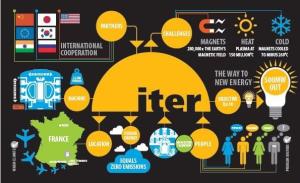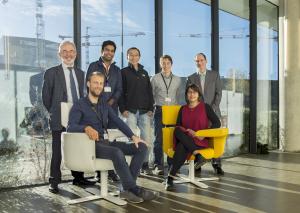Campaign opens for the 6th generation
The ink has only just dried on the second Monaco-ITER Partnership Arrangement. Funded by the Principality of Monaco, the Arrangement allows the ITER Organization to continue for another ten years to host young scientists and engineers and support their fusion-related research efforts. The conclusion of the agreement also signals the start of a new round of recruitment. As of this week, interested candidates can apply to become a Monaco Postdoctoral Fellow in 2018.
There is growing interest in the program among young scientists across the ITER Member higher educational communities. In 2009, the first group of five researchers was selected from among 28 applicants. The current generation of Monaco Fellows had to face a more challenging selection process, similar to that at leading universities, as they were selected from a pool of over 90 young scientists and engineers. "In the upcoming recruitment campaign we expect to have even more applicants," says Luce.
At the same time, having performed research as a Monaco Fellow at ITER will certainly give a boost to careers. Di, who has a PhD from Bejing University, investigates disruption-related macroscopic magnetohydrodynamics (MHD) and density increase as a result of shattered pellet injection. "I am learning a lot in my work here, improving both my academic skills and my knowledge in this area."



